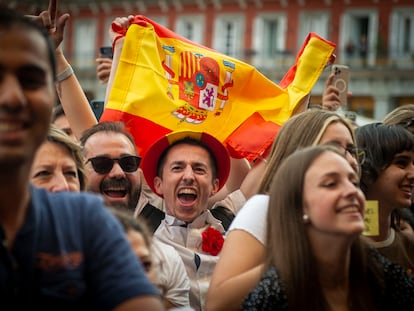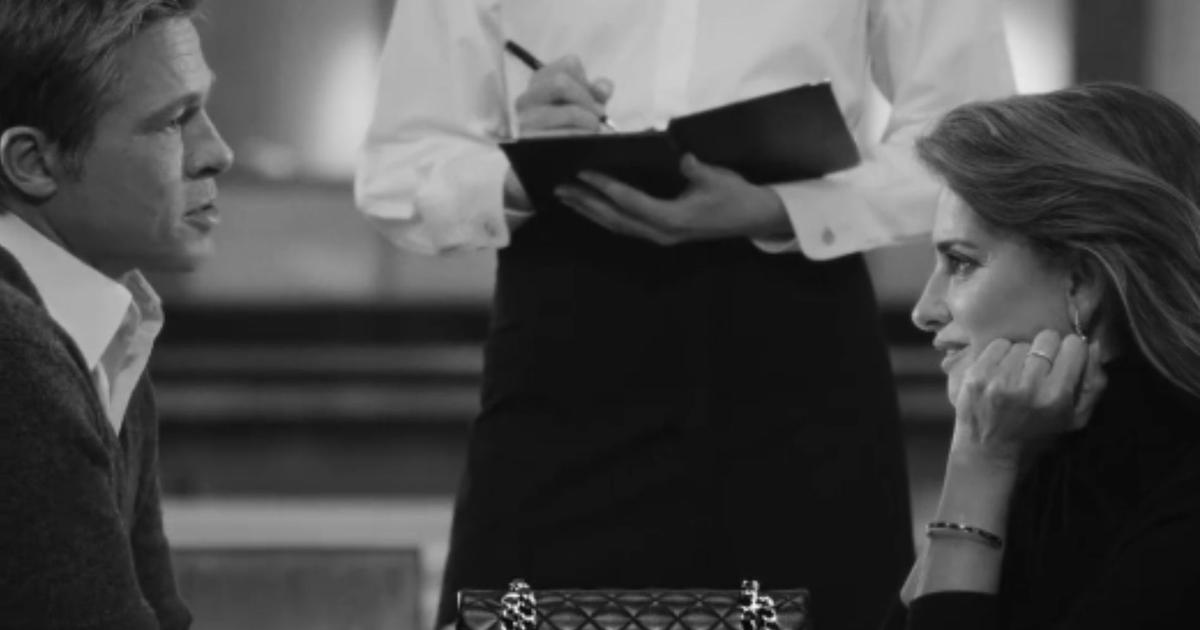Chanel, the representative of Spain in Eurovision is presented in the Plaza Mayor in Madrid. JUAN BARBOSA
After the "chanelazo", Chanel returned to the Plaza Mayor in Madrid turned into a heroine.
She was acclaimed by the masses, riding a green bus, when she had previously been disowned for her controversial election at the Benidorm Fest, in front of candidates more beloved by the public, or for embodying a product that many considered too
establishment
, too commercial, too tacky, a copy of the great divas of Anglo-Saxon light pop (due to the many bullfighter jackets from Palomo Spain and due to the fact that the fan is open theatrically).
In the Plaza Mayor, the artist wore sunglasses, because she had "conjunctivitis" from crying so much: "We've had an incredibly hard time," she said.
With that return, the emerging star acquired a mythological dimension.
More information
Questions and answers about the controversial Eurovision 2022 voting: Who benefited?
What happened to the Romanian vote?
From rejected to winner.
How did this amazing metamorphosis in the social perception of Chanel come about?
The simplest explanation is because she carried out an incredible performance and made what seemed mediocre good, thus closing the mouths of all the
haters
who had martyred her on social networks, confusing the interpreter with the product.
Or because she led Spain to a third place that she tasted like glory after a long and frustrating journey near the red lantern, becoming the moral winner.
But the Chanel story has a much deeper appeal, buried deep in our culture and in our brains.
Some thinkers have found certain common elements to the stories that humanity, in all times and places, from Antiquity to Hollywood
blockbusters
, has told itself.
Mythologist Joseph Campbell described a "monomyth" found in many cultures and religions, in many mythologies and folktales, and on which George Lucas relied to create the story of Luke Skywalker in
Star Wars .
.
This "hero's journey" includes elements such as starting a journey (often disowned by your own), achieving great deeds in a hostile outside world, and returning home a hero, having experienced an internal transformation.
In Spain we have very traditional cases such as the Cid Campeador who, banished by King Alfonso VI, begins to wander the Peninsula, achieving great deeds, such as the conquest of Valencia, to end up being accepted again and with honors by the king.
Another case, also very traditional, but closer, is that of the current president of the government, Pedro Sánchez, who, banished by the leadership of his party, travels through Spain in a modest Peugeot, meeting the militancy, to, with renewed strength, emerge victorious against the
establishment
in a primary, get back to dominate his party and, later, become president.
A case that, beyond political preferences, is fascinating for its heroic elements.
This hero's journey can be found, in one way or another, in Ulysses in
The Odyssey
or in the little fish in
Finding Nemo
, in the adventures of Siddharta Gautama or in the protagonists
La La Land
.
No one becomes a hero staying at home.
Chanel's adventures could also fit this scheme.
Chanel was condemned to a kind of ostracism after winning the Benidorm Fest surrounded by controversy.
She begins her journey in the desert, preparing for the Eurovision Song Contest, where she performs her most heroic act, leaving Spain, and some abroad, stunned.
The mythical circle closes when Chanel, in the midst of the San Isidro festivities, is invited to perform in one of the nerve centers of the capital of the kingdom, before enthusiastic masses who not only appreciate Chanel's good position, but have completely empathized with his story: it is the story with which we have been empathizing since the elders of the tribe told stories around the bonfire.
It is the story that we would like to star in.
The popular proverb explains, far from academicism,
You can follow EL PAÍS TELEVISIÓN on
or sign up here to receive
our weekly newsletter
.
Exclusive content for subscribers
read without limits
subscribe
I'm already a subscriber









